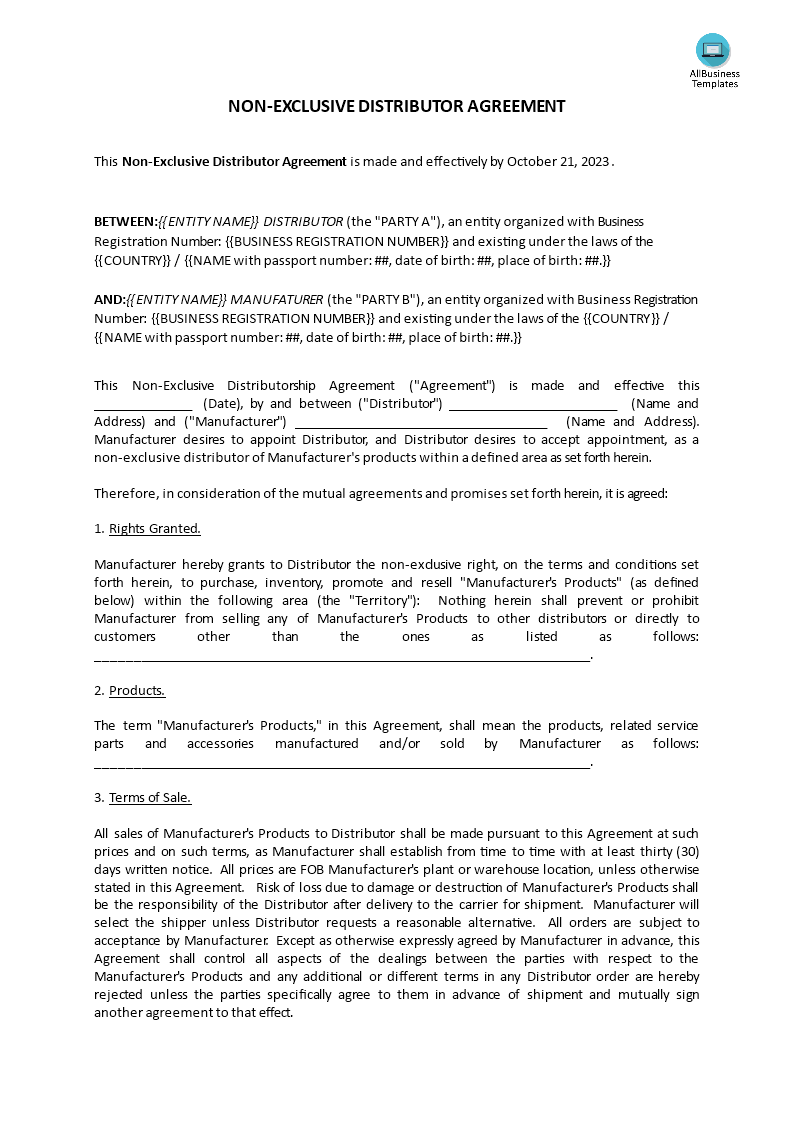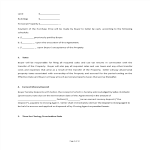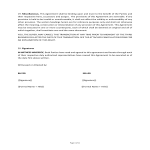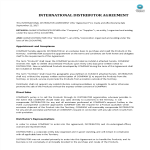Distributor Agreement

Enregistrer, Remplir les champs vides, Imprimer, Terminer!
What are the key components of a distributor agreement? Why do distributor agreements have such a great deal of benefits? Download this distributor agreement template now!
Formats de fichiers gratuits disponibles:
.docx- Ce document a été certifié par un professionnel
- 100% personnalisable
Legal Légal Sales Ventes law loi
What are the key components of a distributor agreement? Why do distributor agreements have such a great deal of benefits? We provide templates that you can use to create your own agreement. Our templates are comprehensive and include all the necessary information. Download our sample template now! Download this Distributor Agreement template now!
A distributor agreement is a legally binding contract between a manufacturer, supplier, or producer (referred to as the "supplier" or "principal") and an independent distributor or distributorship (referred to as the "distributor"). This agreement outlines the terms, conditions, and responsibilities of each party in a distribution arrangement, where the distributor agrees to sell and distribute the supplier's products or services within a specified territory or market.
Here are the key components typically found in a distributor agreement:
- Parties: The agreement identifies the legal names and contact information of both the supplier and the distributor.
- Purpose: A clear statement of the purpose of the agreement, which is usually to establish a distributorship relationship for the sale and distribution of the supplier's products or services.
- Territory: Specifies the geographic area or market within which the distributor is authorized to sell the supplier's products or services. It may be exclusive (meaning the distributor has exclusive rights within the territory) or non-exclusive.
- Products or Services: Describes the specific products or services that the distributor is authorized to sell, including any limitations or restrictions.
- Rights and Obligations:
- Supplier's Obligations: Outlines the responsibilities and support the supplier will provide to the distributor, such as product training, marketing materials, and product warranties.
- Distributor's Obligations: Describes the distributor's responsibilities, which typically include sales targets, marketing efforts, and adherence to the supplier's branding and quality standards.
- Pricing and Payment Terms:
- Details the pricing structure for the products or services, including wholesale prices or discounts.
- Specifies payment terms, including payment schedules and methods.
- Orders and Deliveries:
- Outlines the procedures for placing orders, order processing, and delivery arrangements.
- This may include minimum order requirements or lead times.
- Term and Termination:
- Specifies the initial term of the agreement and any renewal terms.
- Describes the conditions under which either party can terminate the agreement, such as breach of contract, insolvency, or changes in circumstances.
- Intellectual Property: Addresses intellectual property rights, including the use of trademarks, logos, and proprietary information.
- Confidentiality: Contains provisions for the protection of confidential information shared between the parties during the course of the distributorship.
- Dispute Resolution: Outlines procedures for resolving disputes, which may include negotiation, mediation, or arbitration.
- Governing Law: Specifies the jurisdiction and governing law that will apply to the agreement.
- Indemnification and Liability: Describes the allocation of liability and indemnification provisions, which outline how each party is protected in case of legal claims or liabilities related to the distributorship.
- Assignment: States whether the distributor can assign its rights and obligations under the agreement to another party.
- Notices: Specifies how formal notices and communications between the parties should be delivered.
- Entire Agreement: States that the distributor agreement represents the entire understanding between the parties and supersedes any prior agreements or understandings.
- Amendments: Outlines the procedure for making changes or amendments to the agreement.
- Signatures: The agreement is signed and dated by authorized representatives of both parties.
Distributor agreements are essential for establishing clear expectations and protecting the interests of both the supplier and the distributor in a business relationship. These agreements help minimize misunderstandings, define responsibilities, and provide a legal framework for the distribution of products or services in a specific market or territory. It's advisable to consult legal counsel experienced in contract law when drafting or reviewing distributor agreements to ensure they comply with applicable laws and meet the needs of both parties.
Download this non-exclusive Distributor Agreement template now and enhance your business!
AVERTISSEMENT
Rien sur ce site ne doit être considéré comme un avis juridique et aucune relation avocat-client n'est établie.
Si vous avez des questions ou des commentaires, n'hésitez pas à les poster ci-dessous.



